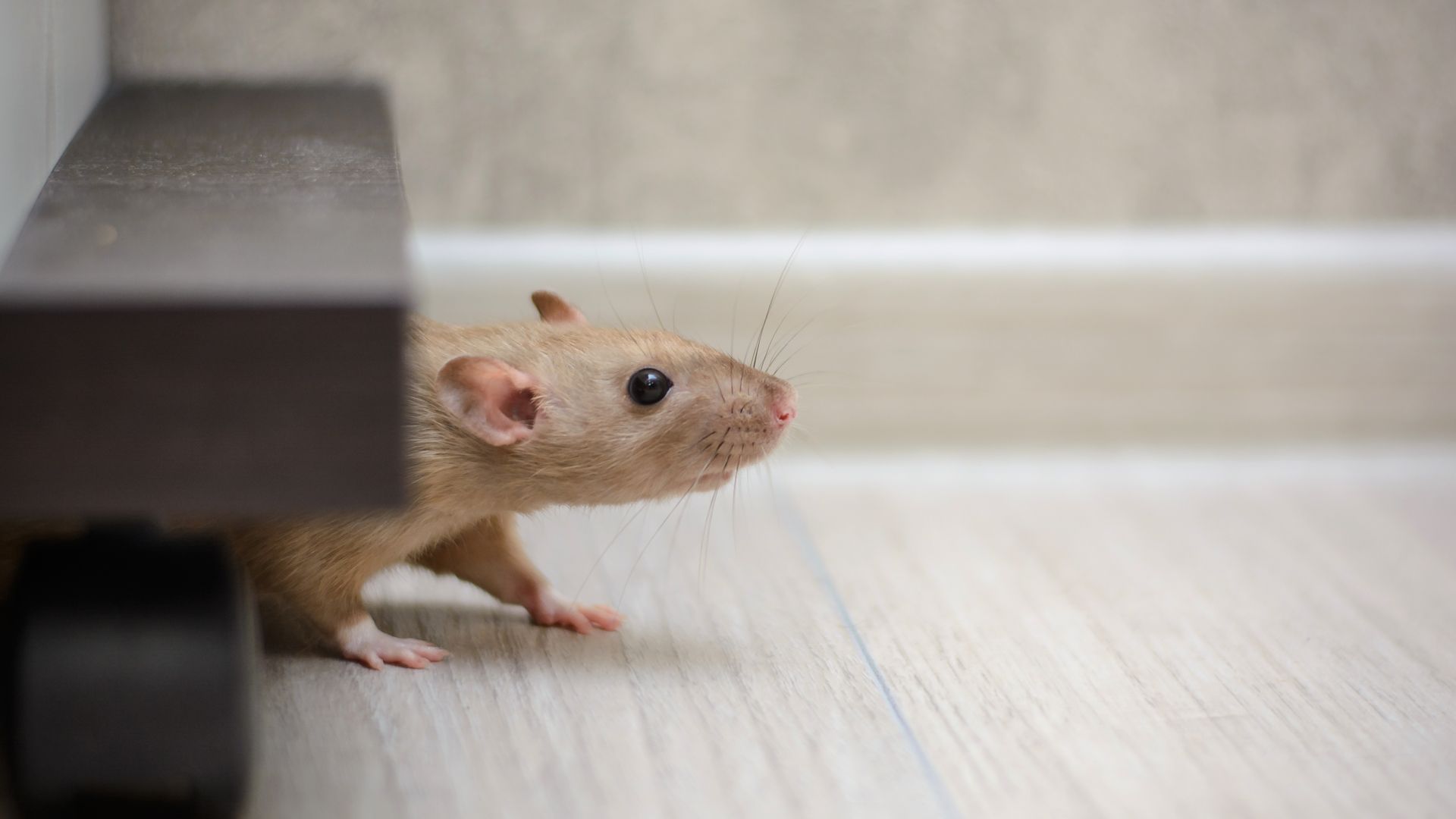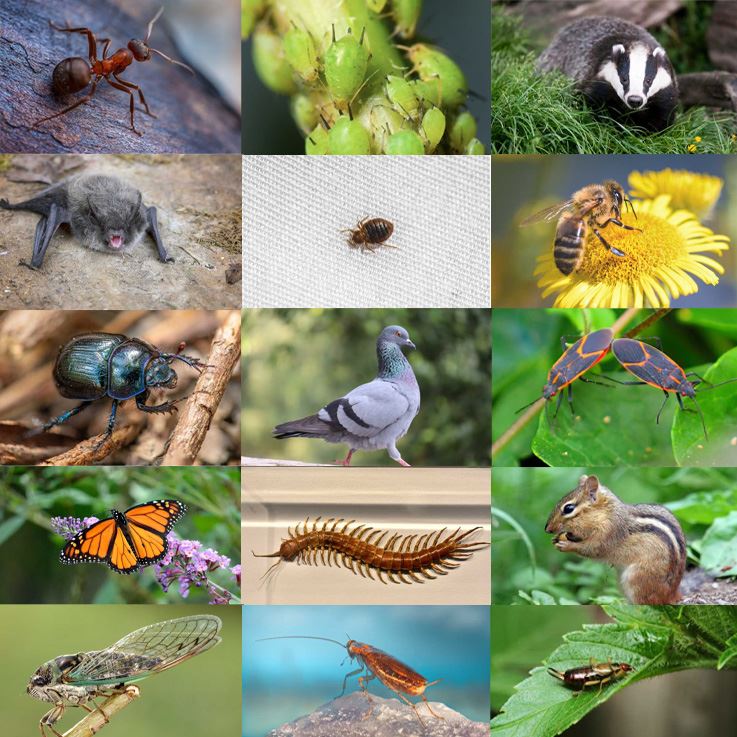
What Are Roof Rats?
Roof rats, also known as black rats (Rattus rattus), are a species of rodent that is found worldwide. They are a part of the Muridae family and are known for their distinctive appearance and behavior. Roof rats are typically smaller than Norway rats (Rattus norvegicus) and have several distinguishing characteristics.
- Appearance: Roof rats are sleek, agile, and have a long, slender body. They typically measure around 6 to 8 inches in length, with a tail that can be even longer than their body. Their fur is usually black or dark brown, and they have large ears and a pointed snout.
- Habitat: As the name suggests, these rats are skilled climbers and are often found in elevated locations, such as trees, attics, rooftops, and other high places. They are highly adaptable and can inhabit both urban and rural areas.
- Behavior: Roof rats are nocturnal, which means they are most active during the night. They are omnivorous and will eat a wide range of foods, including grains, fruits, vegetables, and insects. Their agility allows them to access food sources and shelter in various locations.
- Reproduction: Roof rats are prolific breeders, with a relatively short gestation period. A single female can produce several litters of pups each year, with each litter containing multiple offspring. This contributes to their ability to quickly establish and maintain populations in their habitats.
- Health Concerns: Roof rats can pose health risks to humans and animals, as they can transmit diseases through their droppings, urine, and bites. They are carriers of various pathogens and can contaminate food and water sources.
To manage and control roof rat infestations, it's essential to take preventative measures, such as sealing entry points, keeping food sources secure, and practicing good sanitation. Professional pest control services may be necessary if an infestation becomes a problem. Roof rats are a significant pest species, and their control is crucial for public health and the protection of property.
Where Are Roof Rats Found?
Roof rats (Rattus rattus) are highly adaptable rodents that can be found in various environments, primarily in regions with temperate or warm climates. Here are common places where you might encounter roof rats:
- Urban and Suburban Areas: Roof rats are often found in cities and suburban neighborhoods. They may infest residential and commercial properties, including homes, apartments, businesses, and industrial sites.
- Attics: Roof rats are known for their ability to climb and may enter buildings through openings in roofs, soffits, or vents. Once inside, they often establish nests in attics, wall voids, and ceilings.
- Trees and Vegetation: These rodents are skilled climbers and are frequently found in trees and dense vegetation. They build nests in the branches and may access nearby structures from elevated positions.
- Rooftops: True to their name, roof rats are often found on roofs. They can use utility lines, overhanging tree branches, or other structures to access rooftops.
- Garages and Sheds: Roof rats may seek shelter in garages, sheds, and outbuildings, particularly if these structures provide food sources or nesting opportunities.
- Crawlspaces: They can access crawlspaces under buildings and establish nests in these concealed areas.
- Food Storage Areas: Roof rats are opportunistic feeders and may infest places where food is stored or discarded, such as kitchens, pantries, and garbage storage areas.
- Agricultural Settings: In rural areas, roof rats can be found in agricultural settings, where they may feed on crops, stored grain, or farm buildings.
- Gardens and Orchards: Roof rats can damage crops and fruit trees, making gardens and orchards potential habitats for them.
- Parks and Green Spaces: In some cases, roof rats can inhabit parks, green spaces, and other outdoor areas, particularly if there are sources of food and water.
Roof rats are nocturnal and often come out at night, which can make them challenging to spot. They are also prolific breeders, so addressing an infestation promptly is crucial to prevent their population from growing. If you suspect a roof rat infestation, it's advisable to seek professional pest control services to effectively manage and control these pests.

Hear From Our Happy Customers
-
"Fantastic & Patient"
Jarvis was fantastic and patient. He answered my questions with an in-depth explanation and addressed all of my areas of concern. Would love for him to be my assigned tech going forward. Well done!
- Yonnette M. -
"Wonderful Service"
Wonderful service. Jarvis is great. Took care of everything I needed. Thank you!
- Henry P. -
"Great Communication"
Tech was on time, communication was great, and he accommodated my needs.
- Alonzo W. -
"Exceeds Expectations"
I can’t say enough positive things about this company... The tech that came out, Jarvis went above and beyond my expectations. Thank you guys, I will continue using your services.
- Jake M. -
"Professional & Considerate"
I’m pleased with Miche services. Jarvis came today. Professional and considerate. Thank you!
- Judy B. -
"Very Knowledgeable"
The tech that arrived was courteous, professional, and very knowledgeable. He was Great.
- Uerial I.
What Do Roof Rats Eat?
Roof rats (Rattus rattus) are omnivorous rodents with a varied diet. They are opportunistic feeders and can consume a wide range of foods. Their dietary preferences can vary based on the availability of food sources in their environment. Here is what roof rats typically eat:
- Fruits and Vegetables: Roof rats have a strong preference for fruits and vegetables. They may feed on items such as citrus fruits, apples, bananas, berries, and a variety of garden vegetables.
- Grains and Seeds: They are known to eat grains and seeds, making them potential pests in agricultural settings. This can include crops like grains, rice, and corn.
- Nuts: Roof rats will consume nuts, including almonds, walnuts, and other tree nuts.
- Insects and Invertebrates: In addition to plant matter, they also feed on insects, spiders, and other invertebrates. This protein source is an essential part of their diet.
- Bird Eggs and Nestlings: Roof rats are skilled climbers and can raid bird nests for eggs and young birds.
- Pet Food: They are known to forage for and consume pet food if it is left out or easily accessible.
- Human Food: Roof rats are not averse to raiding human food sources. They can scavenge in kitchens, pantries, and food storage areas for items such as cereals, bread, and other packaged foods.
- Garbage: They are scavengers and will rummage through garbage cans and dumpsters for discarded food.
- Carrion: Roof rats may also consume carrion, which includes the carcasses of small animals, birds, or other rodents.
- Nectar: In some cases, they have been observed feeding on nectar from flowers.

Are Roof Rats Dangerous?
Roof rats (Rattus rattus) can be considered dangerous in several ways, posing risks to both human health and property. Here are some of the dangers associated with roof rats:
- Disease Transmission: Roof rats are known to carry and transmit various diseases. They can contaminate food, water, and surfaces with their urine, feces, and saliva. Diseases that can be transmitted by roof rats include leptospirosis, hantavirus, salmonellosis, and rat-bite fever, among others. These diseases can be severe and, in some cases, even life-threatening to humans.
- Property Damage: Roof rats have strong, sharp teeth that continually grow, leading them to gnaw on various materials to keep their teeth at a manageable length. They can cause structural damage by chewing on wood, electrical wires, insulation, and pipes. This activity can lead to fires, water leaks, and other safety hazards.
- Contamination of Food and Food Storage: Roof rats often infest kitchens and pantries, contaminating food with their urine and feces. Their presence can result in significant financial losses due to food spoilage and the need to replace contaminated items.
- Damage to Landscaping and Agriculture: In outdoor settings, roof rats can damage gardens, orchards, and crops by feeding on fruits, vegetables, and grains. They can also damage ornamental plants and landscaping features.
- Allergies and Asthma: Rat allergens found in their urine, feces, and shed skin cells can trigger allergies and asthma in sensitive individuals, potentially leading to respiratory problems.
- Infestations and Psychological Stress: Roof rats are social animals that often live in colonies. A single infestation can quickly multiply, causing a population explosion. The presence of roof rats in and around homes can create psychological stress for residents due to the unpleasant sights and sounds associated with infestations.
- Contamination of Water Sources: Roof rats can contaminate water sources, especially in areas where they live near water bodies, by depositing their waste into the water.
- Displacement of Native Species: In some regions, roof rats have been introduced and have had a negative impact on local ecosystems by outcompeting and displacing native species.
Given these potential dangers, it is crucial to take preventive measures to avoid roof rat infestations. This includes sealing entry points, maintaining a clean and sanitary environment, and seeking professional pest control services if an infestation is suspected. Swift action is necessary to protect both human health and property from the risks associated with roof rats.



